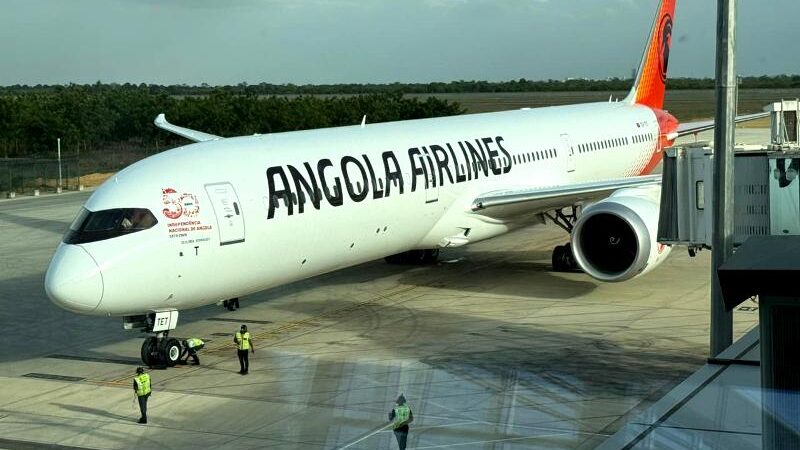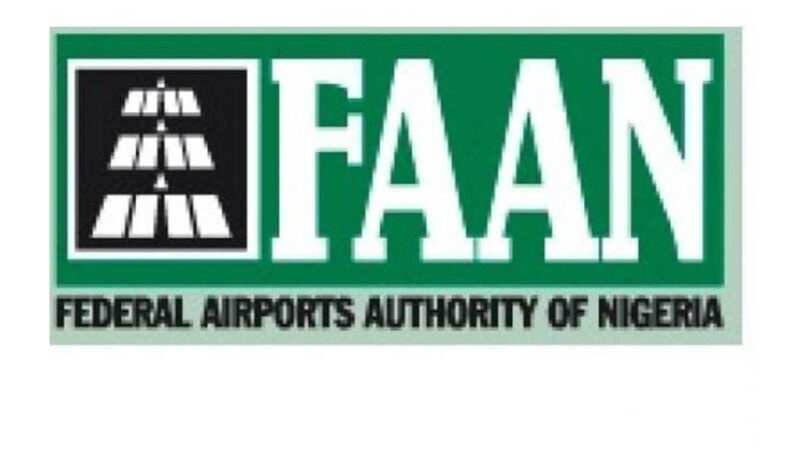Experts Say Nigeria Can Benefit From AfCFTA, Cargo Opportunities

Key players in air cargo business who attended the 4th CHINET Aviacargo Conference held at Marriot Hotel, Ikeja, Lagos on August 22, 2024 have expressed a consensus opinion that Nigeria can benefit from the African Continental Free Trade Area (AfCFTA) agreement and maximize the existing cargo opportunities if appropriate measures are taken.
Presenting his paper on challenges of export at Nigeria’s airports, the National President of African Association of Professional Freight Forwarders & Logistics of Nigeria (APFFLON), Otumba Frank Ogunojemite said “fact has emerged that for Nigeria to benefit maximally from the African Continental Free Trade Area (AfCFTA) agreement, projected to elevate 30 million people out of abject poverty, generate a market hub that will connect 1.3 billion people in 55 countries and also generate $3.4 trillion aggregate GDP, the country has to be adequately prepared to effectively compete in export trade.
Experts had disclosed that for this to be achieved, there must be effective distribution channels in which logistics, which is movement of people and goods, play indispensable role of bridging the gap between the dream and its reality. Reference was made after a report carried out after a conference recently, which highlighted inadequacies within the export space, which include problems of limited export production, limited/ or no capacity for certification/packaging of exportable products, infrastructural deficiency in the logistics and evacuation of exports, low penetration and access to key markets. However, another problem include limited export production, as Nigerians are more interested in importation of goods rather than promoting export.
Most of these challenges will continue to exist until every agency of government will consciously aim at helping to mitigate and resolve some of these issues, and not seeing themselves as being up there, while every other person is down beneath.”
Ogunojemite charged National Agency for Food and Drug Administration and Control (NAFDAC), Standards Organization of Nigeria (SON), Quarantine Service, Nigerian Immigration Service, Customs and other agencies to ease certification processes, frowning at extortion and bureaucracy at the airports by officials, adding that the “Nigeria Export Processing Zone Authority (NEPZA) said that some of these laws do not exist in the books but are created by these agency officials to extort money from exporters.”
“If you look at what is going on in some of our aviation industries precisely in this environment, there are a lot of unapproved people in that place. Maybe because it is our usual Nigerian way of doing things, some of these levies cannot be accountable for or taxes that people collect. How many agencies are even in Lagos (Murtala Muhammed International Airport). If you go to the airport, somebody will tell you that they have to survive but this is not the same thing we see when we travel to other countries,” he said.
As solution to these challenges, he identified infrastructural development, involving modernizing and expanding airport facilities, including cargo terminals and warehouses; automation and digitalization in form of implementing electronic platforms for cargo tracking, customs clearance, and documentation; efficient customs processes in form of streamlined customs procedures, reduce paperwork, and increase transparency; capacity building, establishing clear regulations and standards for air cargo export; Public-Private-Partnership, competitive pricing for air cargo services, marketing and promotion and collaboration with international airlines
“From not meeting standardization, inefficient regulation, corruption to hiccups in cargo freighting from the nation’s airports, it is obvious that many facts have proven that it is Nigeria that is holding itself down from taking advantage of the huge market, whereas Nigerian farm produce and other products from Nigeria are in high demand from different parts of the world,” he said.
Highlighting domestic air cargo Capacity in Nigeria while making his presentation, former Airport Commandant at Murtala Muhammed Airport, Group Capt. John Ojikutu (Rtd), noted that “import air freight in the last ten years is less than 300,000 tons yearly. Domestic air cargo is less than 50,000 tons annually and domestic air cargo should target minimum of 5-10% of the available cargo in millions on roads and rails in the next 5 years and grow it up to 20% in the next 10 years.”
On measures that should be taken, Ojikutu said: “Concentrate more on Food/Agricultural produce and Drugs /Pharmaceuticals to benefit from Government Intervention for Transportation / Distribution. Government should stop forthwith food importation for 200 million Nigerians, but should be protecting the local farmers to produce food locally to grow the economy for National security. Identify profitable Air Cargo Routes and have their designated operational base approved by the NCAA and identify the Industrial Airports and their States: Ikeja (Lagos), Agbara/Ota (Ogun} Kano, Kakuri (Kaduna) Aba (Abia) Port Harcourt (Rivers) Jos (Plateau) Onitsha (Anambra),Emene (Enugu Choice of Cargo Aircraft should be limited to Propeller/ Double Propeller Engine with load capacity of 20-50 tons.
Select three airports from each of the 6 zones of the Federation and designate each as Cargo Terminals for Food Crops and Drugs/Pharmaceutical Products. Only Airlines (if necessary, Certified Allied Ground Handling Services) should be allowed to open Cargo Terminals at the Designated Domestic Cargo Airports not any Cargo Handling Agent. Government services like Custom, Plant Quarantine, NDLEA must be Restricted from these Domestic Cargo Terminals. The Domestic Airlines should target not less than a million tons in the next 2 years and 5 million tons in 5 years and 10 million in the next 10 years in Domestic Air Cargo Distribution.”
He advocated concessions to attract more investors. “All navigational/airport charges should be free for the first 2 years (as it was for the Domestic Airlines involved in ECOMOG Operations (1992-1994). Review charges to 10% of the normal charges after 2 years of operations, 20% after 5 years. Not more than 25% thereafter (Only for Domestic Food Production Drugs/Pharmaceutical Cargo Delivery). Plan to lift about 1 million Cargo in 1 year with 30 flights daily to 18 Airports ( 3 in each of the 6 geographical zones). Each flight carrying about 50 Tons Daily or the 60 flights carrying 3000 tons daily or 900,000 tons in 18,000 flights annually. At average of 50 tons per flights, government support for food Security by Air Cargo will be N144 billion annually.
The Manager of Cargo Services at SAHCO Plc, Mr. Donald Adekunle, in his presentation on the organization’s innovations in cargo handling, identified industry challenges as infrastructural limitations, operational inefficiencies, regulatory and compliance issues and work force shortage, stating that SAHCO’s innovations have reduced turnaround time, increased cargo through put and reduced operational cost due to automation while giving the company competitive edge.
On how government can drive Industry growth, he recommended creating an enabling environment, reduction of tariffs, implementing a single tariff across government agencies, providing fee incentives, waivers, and tax waivers, offer of single-digit loans, providing foreign exchange at specialized rates for equipment purchases and allowing relevant government agencies to offer packaging training for cargo agents to meet international standards.
The Chief Operating Officer and Executive Director of Ibom Air Limited, Mr. George Uriesi in his paper titled “The Role Of Airlines In The Development Of Air Cargo,” said: “We can change the game in Nigeria if and when we really want to…It’s about having the will. If and when we eventually do have the will, we will make the way!.”
The Minister of Aviation & Aerospace Development, Mr. Festus Keyamo (SAN) had earlier said in his keynote speech, that proactive steps were being taken by his Ministry to ensure that Nigeria not only participates in the global cargo market but leads it.






